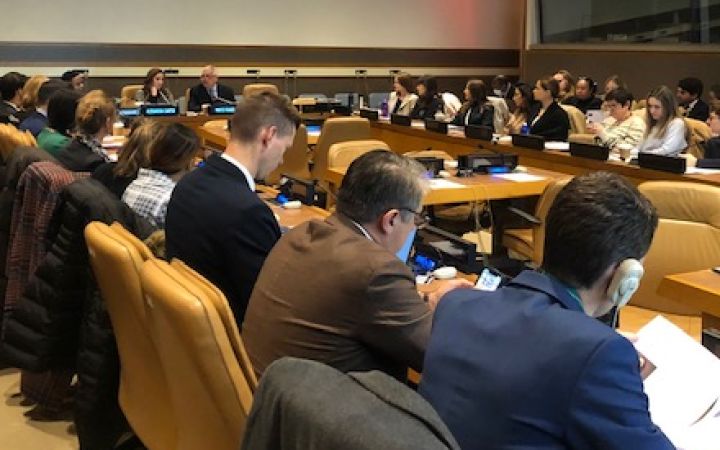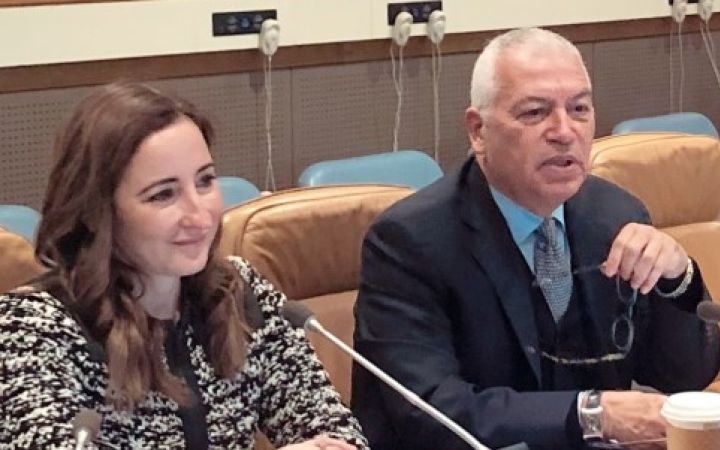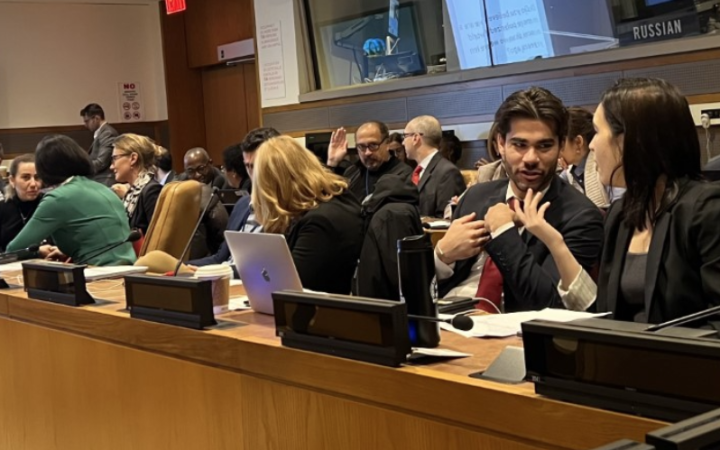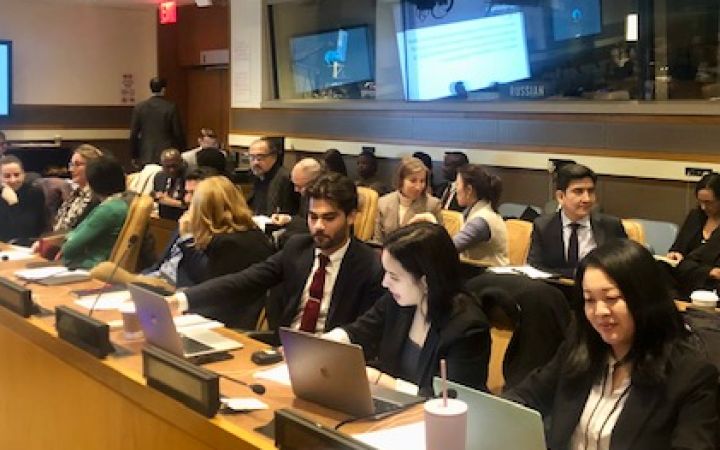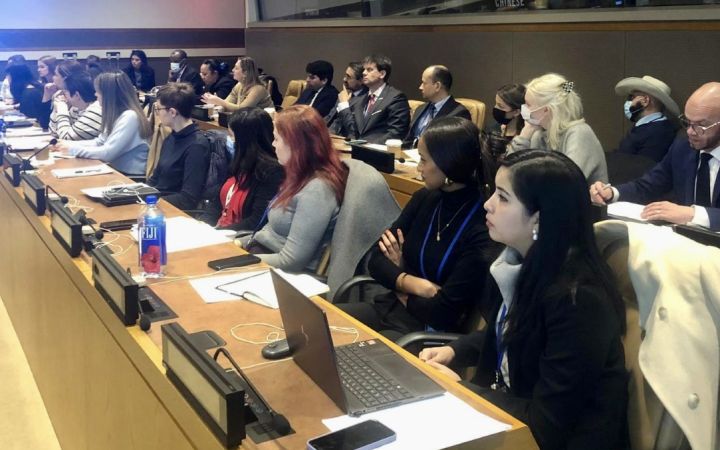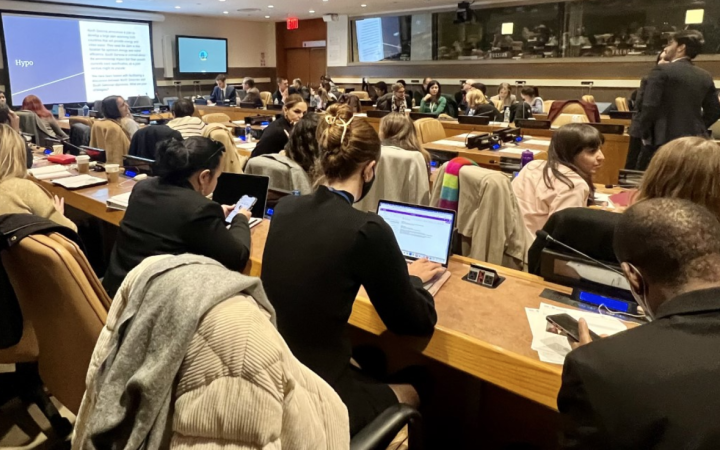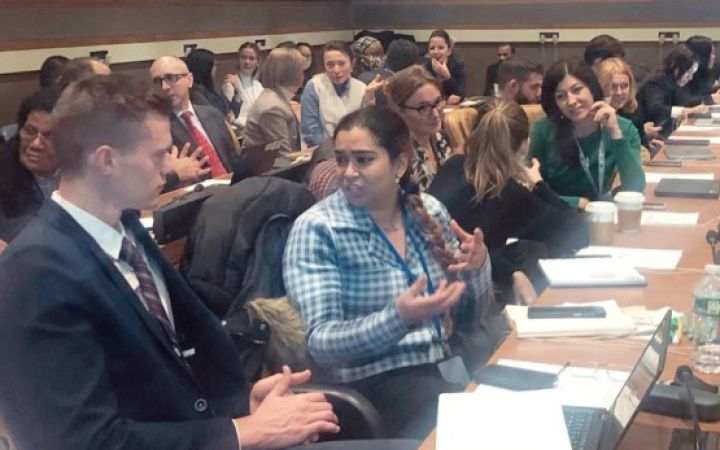14 November 2022, New York, USA - The United Nations Institute for Training and Research (UNITAR) New York Office (NYO) hosted a second training session entitled “Conflict Resolution in the Era of Political Polarization” in collaboration with the Columbia Law School Mediation Clinic. Gathering more than 100 participants, the event aimed at understanding the survey techniques to deal with polarization in the context of conflict resolution, examining the role of polarization in producing negotiator bias and discussing the best practices for dilemmas that arise when negotiating in polarized situations.
The event started with Mr Marco Suazo, Head of UNITAR New York Office and Ms Alexandra Carter, Professor at Columbia Law School delivering welcoming remarks to participants. The session then continued with an overview of polarization, the explanation of transference and tools for conflict resolution in polarized situations and the examination of a hypothetical conflict, led by Professor Alexandra Carter’s team members from the Columbia Law School Mediation Clinic. The workshop also included interactive exercises.
The first presenter, Mr Brenton Browne gave an overview of polarization by first examining the concept. He discussed polarization in the modern context with an emphasis on group polarization and explained why the latter happens and matters. He also explained the various benefits of recognizing group polarization trends that include raised self-awareness and better shaped mediation decision points, to name a few. He also encouraged an open discussion with participants about assumptions and how they may lead to polarization.
The floor was then given to Ms Angel Li who focused on the notion of transference by examining the unconscious process of redirecting our feelings about one person or group to another and how this may lead to polarization. She explained that transference approaches the issue of polarization from an individualized psychological perspective and that the theory of transference encourages us to be aware that our responses to another party may be an emotional reaction as opposed to legitimate ideological disagreement.
The floor was then given to Ms Isabel Bolo and Mr Sasha Yusuf who explored the various tools for conflict resolution in polarized situations by considering important skills that can utilized to facilitate discussion and resolve conflict in polarized environments. Those five skills are asking the right questions, active listening, amplification and stroking, summarizing and finally identifying facts, interests, and feelings. The speakers introduced a group activity for participants on summarizing and reframing, based on an imaginary scenario.
The final presentation by Ms Bolo and Mr Yusuf focused on examining a hypothetical conflict where there is a high level of polarization impacting a conflict. In groups, attendees were encouraged to discuss ways to facilitate a discussion between the hypothetical opposing sides. Participants were then invited to share their strategies with the presenters and fellow delegates.


